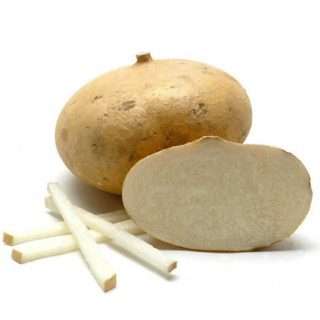

While the flesh of the jicama bulb is safe for dogs to eat, it’s important to note that other parts of the tuber, such as the seeds, skin, stem, and leaves, are toxic to dogs. Therefore, special care must be taken when preparing jicama for your furry friend.
Jicama, also known as Mexican turnip, is a great source of dietary fiber that can help prevent constipation, aid digestion, and promote feelings of fullness in your dog. It’s also low in calories, making it a good choice for overweight dogs. Additionally, jicama contains essential vitamins and minerals such as vitamin C and E, iron, beta carotene, and potassium.
It’s important to note that only the flesh of the jicama bulb is safe for dogs to eat. The seeds, skin, stem, and leaves contain toxins that can be harmful to your pet’s health.
When serving jicama to your dog, only the flesh should be used. It can be served raw or cooked, but if cooking, make sure to cut it into bite-sized pieces and either boil or bake it.
Jicama, also known as Mexican turnip, refers to the edible bulbous root of the bean family plant Pachyrhizus erosus. The flesh of the jicama bulb is safe for dogs to consume as it's low in calories, high in fiber, and packed with essential vitamins and minerals. Jicama can aid digestion, prevent constipation, and make your furry friend feel full. However, you must be cautious as other parts of the tuber, such as the seeds, skin, stem, and leaves, are toxic to dogs and can cause harm if ingested. Jicama is relatively affordable and available in most grocery stores and can be served raw or cooked in bite-sized pieces. If you have a furry friend who loves jicama, you might want to substitute it with cucumber or celery, which also offer similar health benefits.
Have you ever tried giving jicama to your dog? Did they like it? Let's chat in the comments. Remember to only serve the flesh while avoiding the skin, seeds, stem, and leaves. Keep your furry friend safe and healthy.